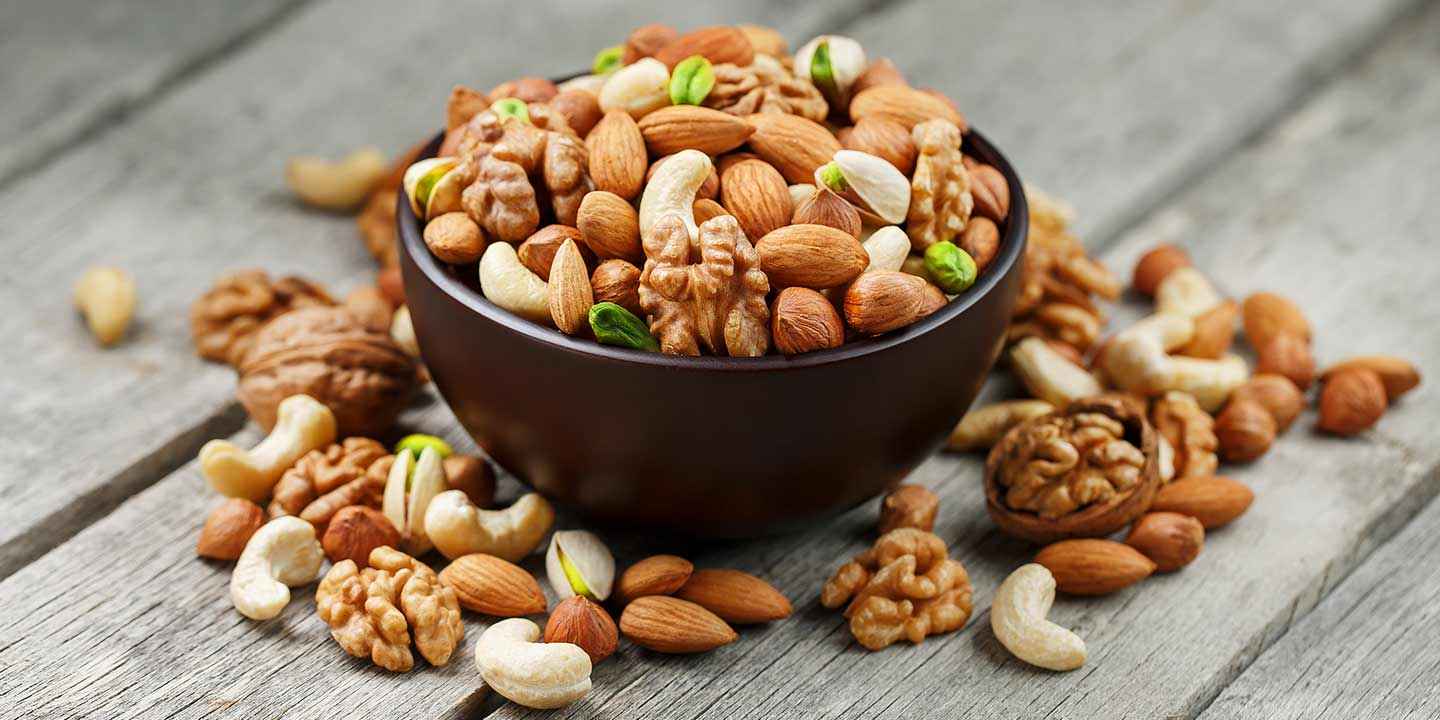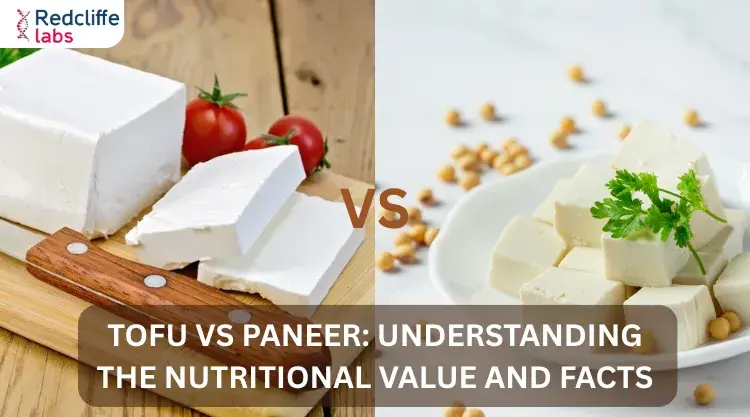7 Healthiest Nuts: Protein and Other Benefits

Medically Reviewed By
Dr. Ragiinii Sharma
Written By Prekshi Garg
on Sep 21, 2022
Last Edit Made By Prekshi Garg
on Jan 10, 2025

Nuts are one of the healthiest and richest sources of plant-based proteins. These are not only tasty but also provide innumerable health benefits to your body. You must have often heard your elders telling you to eat almonds or other nuts daily in the morning. Have you ever wondered why? Let us explore the various benefits of the healthiest nuts. In this article, we bring you the list of the 7 most healthy nuts you can easily include in your daily diet.
Which are the healthiest nuts?
Nuts are a power pack of various nutrients. The nutrient profile of different nuts is different. Therefore, the health benefits provided by the nuts are different. Eating one type of nut cannot compensate for the requirement of other types of nuts in your body. These nuts not only provide you with nutrition but also help in several important biological processes. Following is a list of 7 healthiest nuts that you must include in your daily diet.
Almonds
The aroma, flavour, impressive cost, and immense nutrient profile of almonds make them a very popular nut. Apart from eating almonds in roasted or raw form, you can also consume them in the form of almond flour, almond butter, and almond milk. The benefits of almonds are extremely high. Almonds are a rich source of vitamin E, which gives them their antioxidant properties to fight against oxidative damage. Vitamins are also necessary to support cellular communication and your body's immune function. The rich content of proteins, healthy fat, vitamins, fibres, and minerals in almonds help reduce the risk factors associated with heart diseases like increased levels of bad cholesterol (LDL) and excess belly fat. According to research, eating 56 grams of almonds daily can reduce your bad cholesterol levels, hemoglobin A1c (blood sugar control marker), and inflammatory markers. Almonds also promote the health of your gut by supporting the growth of good gut bacteria like Lactobacillus and Bifidobacteria species.
What is the nutritional value of almonds?
According to the U.S. Department of Agriculture and FoodData Central, 28 grams or 1 ounce of almond contains:
- 170 calories
- 6 grams protein
- 15 grams fat
- 3 grams fibre
- 6 grams carbohydrate
- 19% of the daily value of magnesium
- 45% of the daily value of vitamin E
- 27% of the daily value of manganese
Pistachios
Pistachios, commonly known as the green nut, is an ancient nut being consumed ever since 6000 B.C. Pistachios are full of nutrients with a lesser amount of fat and calories as compared to the other nuts. The benefits of pistachios are innumerable. Pistachios are a rich source of vitamin B 6, which is required for nutrient metabolism and proper immune function of your body. Pistachios also contain many plant compounds that have anti-inflammatory and antioxidant properties, like proanthocyanidins, flavonoids, anthocyanins, carotenoids, lutein, and zeaxanthin. According to a study, pistachio can also help decrease blood pressure and increase the levels of antioxidants in the blood. Pistachio also helps in increasing the uptake of fibre and reducing sweet intake.
What is the nutritional value of pistachios?
According to the U.S. Department of Agriculture and FoodData Central, 28 grams or 1 ounce of pistachio contains:
- 159 calories
- 13 grams fat
- 8 grams carbohydrates
- 6 grams protein
- 3 grams fibre
- 28% of the daily value of vitamin B6
- 21% of the daily value of vitamin B1 or thiamine
- 11% of the daily value of phosphorus
Your diet plays a key role in determining your health. Therefore, you must ensure that you take all the vital nutrients through your food and have a balanced diet. Nuts are a great source of nutrition; including them in your diet can help you meet your daily nutritional requirement. So make sure that you include nuts in your diet from today itself.
Walnuts
Eating walnuts has various health benefits due to their high nutrient value. Walnuts contain copper, an essential mineral required by your body for the manufacturing of enzymes involved in the production of energy and the synthesis of neurotransmitters. The walnuts' nutrition content is extremely high and beneficial for your body. Copper also helps in the proper functioning of the immune system and the development of blood vessels. Walnuts are also beneficial for improving and maintaining your heart health. Walnuts help reduce several risk factors associated with the development and progression of heart diseases, like increased triglyceride levels, bad cholesterol, and blood pressure. According to several studies done on animals and humans, consumption of 28-57 grams of walnuts per day can also improve your brain's functioning. The daily intake of walnuts also reduces your risk factors like type II diabetes and heart disease that may lead to dementia at later stages.
What is the nutritional value of walnuts?
According to the U.S. Department of Agriculture and FoodData Central, the nutritional content present in 28 grams of walnuts is:
- 185 calories
- 18.5 grams of fat
- 4 grams of carbohydrates
- 4 grams of protein
- 2 grams of fibre
- 11% of the daily value of magnesium
- 50% of the daily value of copper
- 42% of the daily value of manganese
Cashews
Cashews are one of the favourite nuts consumed greatly in India. Their creamy mouthfeel and crunchy texture make them a highly used nut. They are not only consumed in their roasted or raw form but are also added to various Indian gravies and are used as nut butter as well. Apart from their amazing taste, cashews are also rich in various nutrients that maintain the health of your bones. Cashews contain high content of vitamin K, manganese, magnesium, and protein. According to research, including high content of cashews in a diet can improve various symptoms of metabolic syndrome like increased levels of fat in the blood, blood sugar levels, blood pressure, and belly fat. These symptoms increase your risk of diabetes and heart disease.
What is the nutritional value of cashews?
According to the U.S. Department of Agriculture and FoodData Central, the nutritional content present in 28 grams of raw cashew is:
- 155 calories
- 12 grams of fat
- 9 grams of carbohydrates
- 5 grams of protein
- 1 gram of fibre
- 20% of the daily value of magnesium
- 8% of the daily value of vitamin K
- 20 % of the daily value of manganese
Peanuts
The peanut is not a typical nut and belongs to a legume family. The benefits of peanuts, their uses, and their nutritional profile are similar to the tree nuts. Peanuts are an excellent source of plant protein that helps you feel full for a long time. The peanut's nutrition profile is rich in vitamin B (folate), which is essential for your body, especially during pregnancy, as it plays an important role in the development of the foetus and the placenta. A peanut-rich diet is also very helpful in maintaining the health of your heart. According to a study, consumption of peanuts along with other tree nuts at least twice a week can lower your risk of heart disease by 19%.
What is the nutritional value of peanuts?
According to the U.S. Department of Agriculture and FoodData Central, the approximate nutritional content present in 28.35 grams of peanuts is:
- 162 calories
- 13.5 grams of fat
- 6 grams of carbohydrates
- 7 grams of protein
- 2.5 grams of fibre
- 17% of the daily value of folate (vitamin B9)
- 23% of the daily value of niacin (vitamin B3)
- 12% of the daily value of magnesium
Hazelnuts
Hazelnuts are very common nuts used widely in bakery products these days. These have a very high content of nutrients that provide various health benefits to your body. Apart from the nutrition, hazelnuts also contain various compounds that have anti-inflammatory and antioxidant effects. These include garlic acid, caffeic acid, epicatechin, and quercetin. Including hazelnuts in your daily diet not only improves the quality of your diet but also increases your daily intake of antioxidants. According to a review study, hazelnuts can also reduce the risk factors associated with heart diseases like increased levels of bad (LDL) cholesterol and total cholesterol.
What is the nutritional value of hazelnuts?
According to the U.S. Department of Agriculture and FoodData Central, the nutritional content present in 28 grams of hazelnuts are:
- 178 calories
- 4 grams of proteins
- 17 grams of fat
- 3 grams of fibre
- 5 grams of carbohydrates
- 11% of the daily value of magnesium
- 28% of the daily value of vitamin E
- 76% of the daily value of manganese
Brazil nuts
Brazil nuts are also extremely healthy for humans. They are a rich source of mineral selenium and other nutrients like vitamins and minerals, especially vitamin E. They are a rich source of magnesium as well. Magnesium is an essential mineral which is required for the regulation of blood pressure and sugar levels in the blood. Magnesium also modulates the functioning of your nerves and the production of energy. The high selenium content in brazil nuts is required for various critical functions of the body, like the synthesis of DNA and the production of thyroid hormone. However, it is very important to limit your selenium consumption, as more than 400 mcg intake of selenium can lead to selenium poisoning in your body. However, selenium poisoning occurs more commonly due to supplements and not because of food. Selenium is also an important antioxidant that protects your body against oxidative damage.
What is the nutritional value of selenium?
According to the U.S Department of Agriculture and FoodData Central, the nutritional content present in 28.35 grams of brazil nuts is:
- 187 calories
- 19 grams of fat
- 3 grams of carbohydrates
- 4 grams of proteins
- 2 grams of fibres
- 25% of the daily value of magnesium
- 11% of the daily value of vitamin E
- 544 µg of selenium
What are the benefits of eating nuts every day?
Nuts are extremely rich in nutrients. Apart from providing you with nutrition, there are many other benefits of consuming nuts daily.
- People often think that nuts may lead to an increase in weight. But in reality, most of the fat in nuts is in the unsaturated form, making you feel full for a longer time. Thus, you tend to eat less over time. According to studies, people who eat nuts have lower chances of gaining weight.
- Several groups of scientists believe that the consumption of nuts can help manage diabetes as well.
- Nuts are extremely healthy for your heart as well. Consumption of nuts at least four times a week has indicated a decrease in the cases of myocardial infarctions and coronary heart diseases.
- Nuts also regulate the levels of cholesterol in your blood. Daily intake of nuts can decrease the level of triglycerides and LDL cholesterol in your body, decreasing the risk of cardiovascular diseases and stroke.
- Nuts are also beneficial in preventing metabolic syndrome. Metabolic syndrome refers to a range of risk factors that increase your risk for type II diabetes, stroke, and heart disease.
- Nuts are also very effective in treating long-term and chronic inflammation.
- Nuts have high fibre content, making them highly beneficial for your digestive system.
Takeaway
Nuts are a power pack of nutrition. The benefits of nuts are innumerable. Not only are essential nutrients, but certain nuts are also rich in minerals otherwise not present in your daily food. Including nuts in your diet ensures that you meet your daily nutritional requirement. Now that you know the 7 healthiest nuts that can provide you nutrition, aid in your daily biological processes, and keep you physically and mentally fit, make sure that you include them in your daily diet.
Frequently Asked Questions (FAQs)
Which nut is highest in protein content?
The protein content in almonds is highest which is around 7 grams per 35 grams of almonds.
Which is the unhealthiest nut?
Nuts are very healthy. However, the less healthy nuts are macadamia nuts and pecans, which have high calories.
Which nuts have high content of omega-3?
The omega-3 content is highest in walnuts. Apart from walnuts, even almonds and hazelnuts are also very good for the health of your heart.



